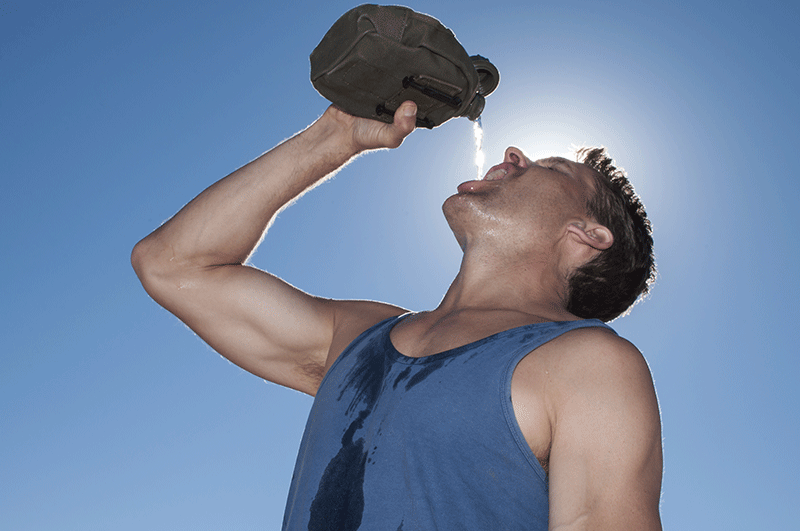Do you have a good understanding of how to prevent heat illnesses?
Heat-related illnesses occur when the body’s temperature control system is overloaded. Heat illnesses can lead to death. According to the Center for Health Statistics of the Alabama Department of Public Health, the total number of heat-related deaths in Alabama in recent years ranged from 7 in the years 2012 and 2013 to 125 in the record-breaking heat wave of 1980.
Many Alabamians have become familiar with the heat index and have learned to anticipate how hot it will feel when the relative humidity is taken into account. The heat index is what the temperature feels like to the human body when the relative humidity is combined with the air temperature.
People suffer heat-related illness when their bodies are unable to properly cool themselves. The body normally cools itself by sweating. But under some conditions, sweating is not enough and their body temperature rises rapidly. Very high body temperatures may damage the brain or other vital organs.
Everyone needs to adjust their activities and be alert to the warnings that may signal help is needed. Individuals with heart problems, poor circulation, diabetes, a previous stroke, or obesity are at greater risk of becoming sick in hot weather. The risk of heat-related illness may increase among people using medications for high blood pressure, nervousness or depression.
Heat stroke, sometimes called sunstroke, is the most serious heat-related illness. It occurs when the body becomes unable to control its temperature. The body’s temperature rises rapidly, the sweating mechanism fails, and the body is unable to cool down. Body temperature may rise to 106 degrees F or higher within 10 to 15 minutes. Heat stroke can cause death or permanent disability if emergency treatment is not provided.
Warning signs of heat stroke vary, but include the following:
- An extremely high body temperature (above 103 degrees F)
- Red, hot, and dry skin (no sweating)
- Rapid, strong pulse
- Throbbing headache
- Dizziness
- Nausea
- Confusion
- Unconsciousness
First aid recommendations are to get the person to a shady area, cool rapidly in a tub of cool water, place in a cool shower, spray with cool water from a garden hose, or, if the humidity is low, place in a cool, wet sheet and fan vigorously. Monitor body temperature and continue cooling efforts until the person’s body temperature drops to 101 to 102 degrees F.
Heat stroke is a life-threatening emergency. A person with heat stroke is likely to be unconscious or unresponsive, so he or she cannot safely consume any liquids. Under no circumstances should you give any alcohol to a person with heat stroke or any heat illness.
In a typical Alabama summer, it’s wise to follow these preventive measures to avoid heat illnesses:
- Drink more water, and avoid beverages containing alcohol or caffeine. Also avoid overly sugared beverages. Drink water even when you’re not thirsty.
- Limit the time you spend outdoors to the early morning and evening hours when the temperatures are cooler. This is the time to exercise or do other outdoor tasks such as gardening.
- When temperatures are extreme, stay indoors, ideally in an air-conditioned place.
- Dress appropriately by wearing loose-fitting, well-ventilated, and thin clothing in light colors. Wear a wide-brimmed hat and use sunscreen of SPF 15 or higher.
- Take a cool shower or bath, and reduce or eliminate strenuous activities during the hottest times of the day.
- Check on elderly relatives, neighbors, and friends.
- Never leave pets or people in parked vehicles.
- Make sure pets have plenty of water to drink and shade to cool off.
Information is also available at adph.org/injuryprevention/.





